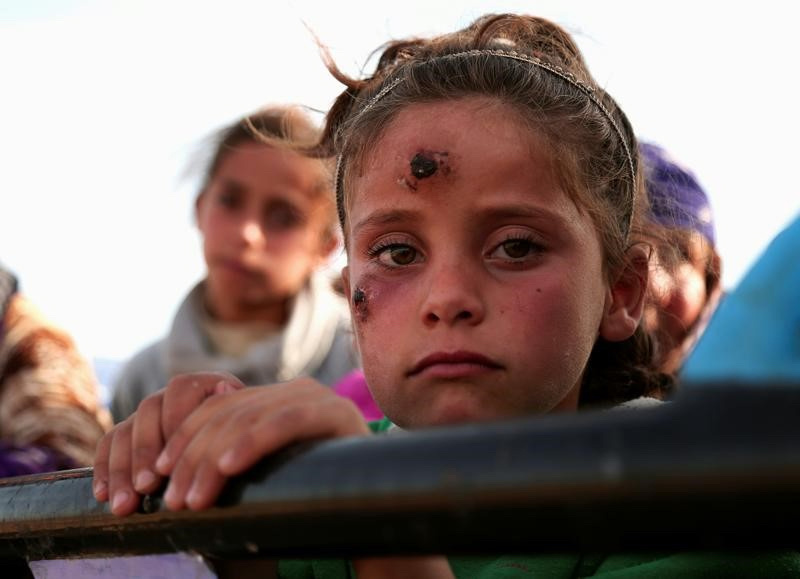London, UK
Thomson Reuters Foundation
Millions of people risk death and disability as Britain shuts down a major aid program targeting neglected tropical diseases, the World Health Organization said.
Britain’s £4 billion aid budget cuts include an exit from its health program Accelerating the Sustainable Control and Elimination of Neglected Tropical Diseases (ASCEND), which was due to run until March, 2022.

A girl, who according to her parents is showing symptoms of Leishmaniasis, returns to Hisha, northern Raqqa countryside, Syria, on 14th November, 2016. PICTURE: Reuters/Rodi Said/File photo.
“ASCEND provided crucial funding to national NTD control, elimination and eradication programmes in 19 countries,” the WHO said in a letter to British lawmakers as part of an enquiry into the future of British aid.
“No obvious alternative source of funding exists to fill the funding gaps that will be left by the exit of ASCEND.”
A spokesperson for the Foreign, Commonwealth and Development Office said it will spend more than £10 billion on aid this year despite the cuts, which were announced last year to free up funds for domestic spending in response to COVID-19.
“We will focus on the UK’s position at the forefront of the international response to COVID-19, and will continue to support programmes in countries affected by neglected tropical diseases,” he added.
Britain has been a global leader in tackling NTDs, a set of diseases including leprosy, rabies and sleeping sickness, which affect some 1.7 billion people in the poorest countries.
The diseases can be prevented or cured – but some can be fatal and others cause blindness, disability and disfigurement.
The funding cuts are likely to result in an additional 20,000 to 30,000 deaths from visceral leishmaniasis, an infectious disease from the bite of infected sandflies, the United Nations health body said.
More than 275 million lifesaving tablets already donated to countries are also likely to expire and have to be destroyed, it added, as British aid had helped to distribute the medicines.
Efforts to eradicate Guinea worm, a parasitic disease spread through water, will also be set back by years, the WHO said.
Guinea worm afflicted 3.5 million people 35 years ago but only 27 human cases were reported in 2020, mostly in Ethiopia and Chad, according to the Carter Center, a US non-profit working to eradicate the disease.
“Funding withdrawal is projected to lead to a resurgence of this crippling disease, outbreaks, spread of disease to previously freed areas and to other countries, with hundreds of communities negatively affected,” said the WHO.
“This will reverse the impact of many years of investment by the UK and other partners.”






